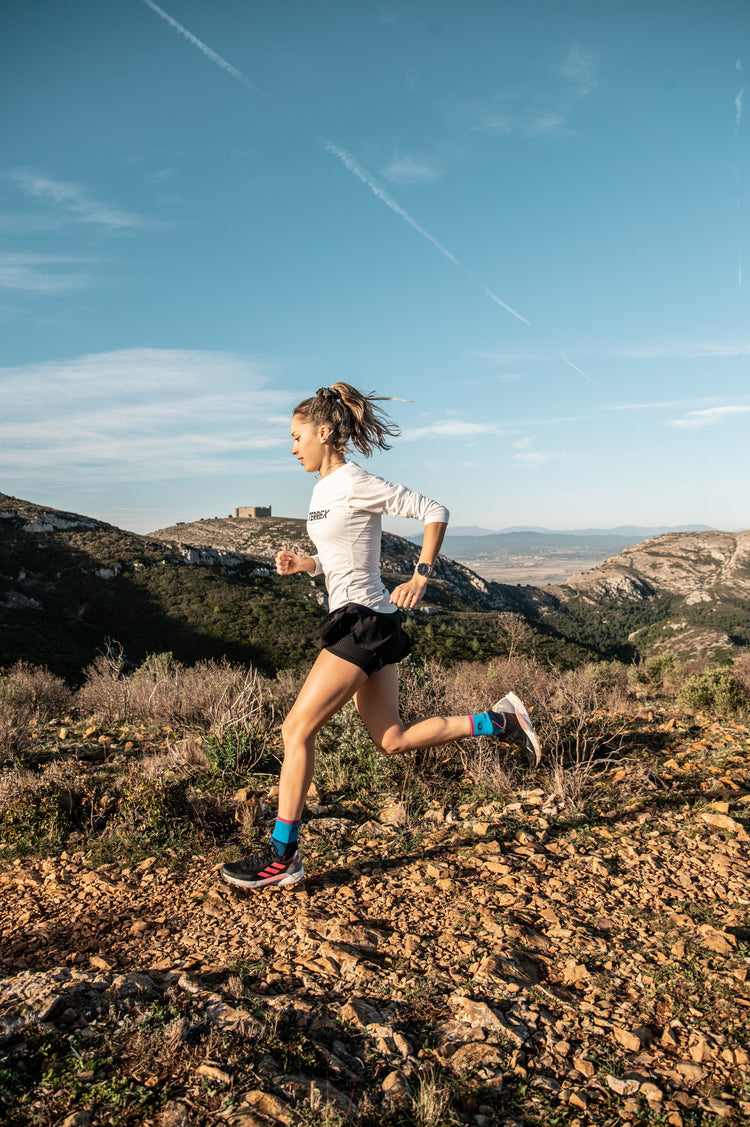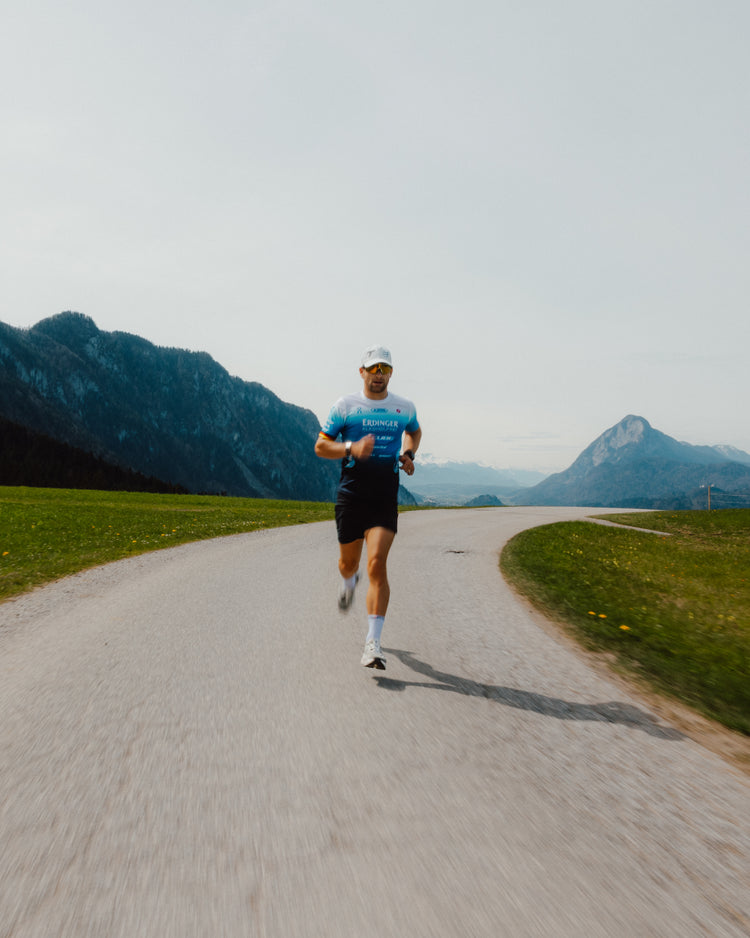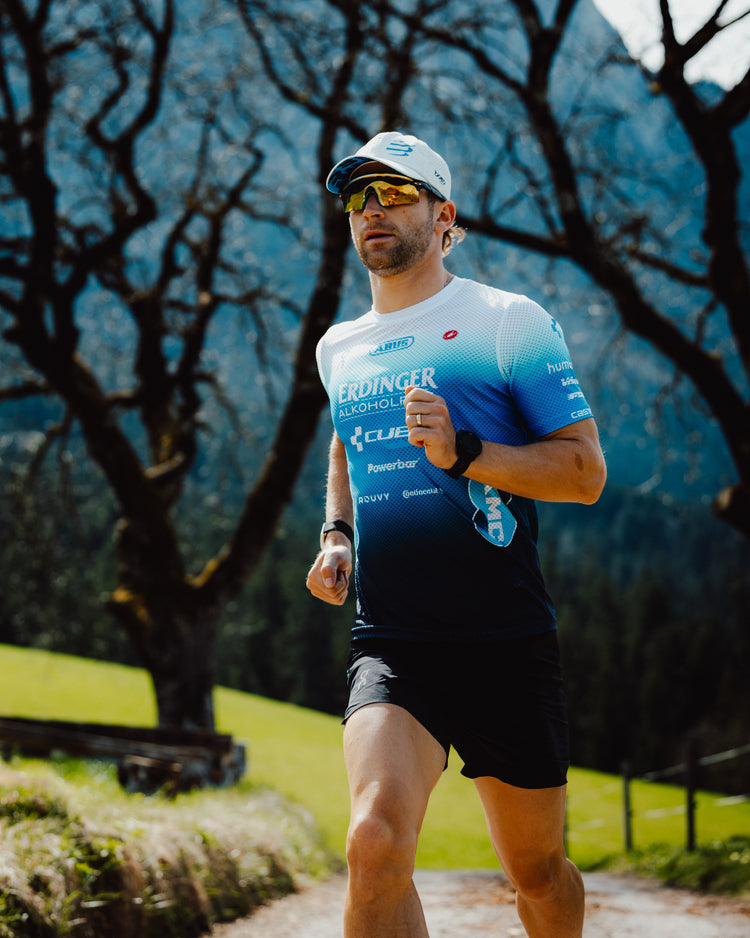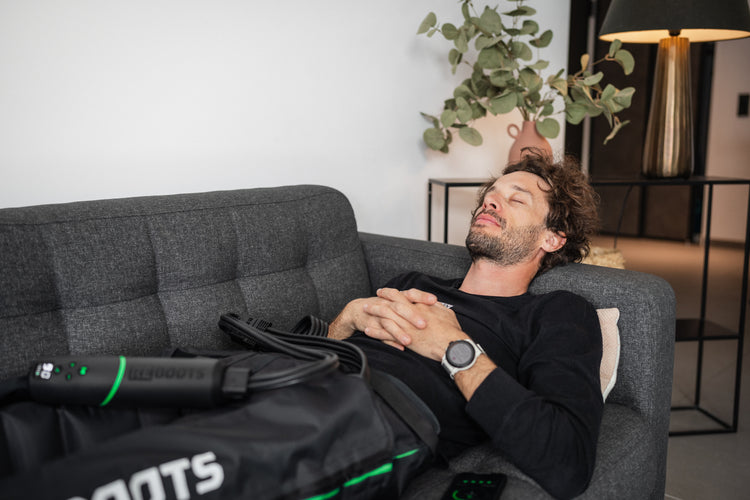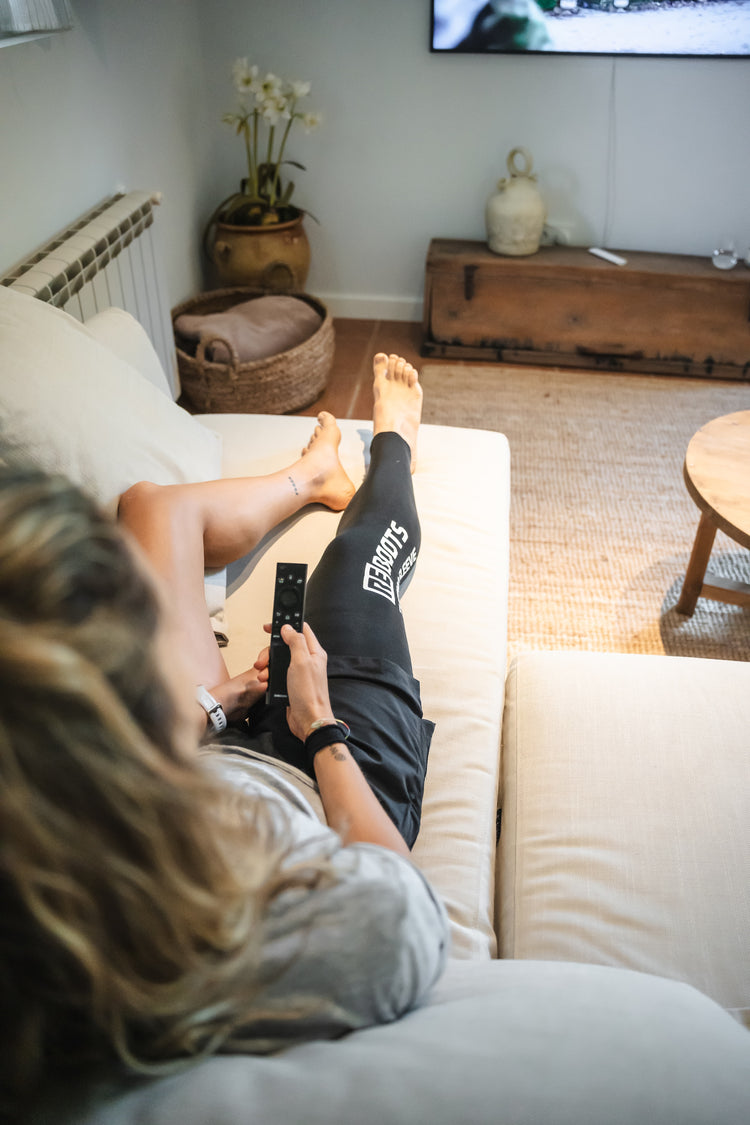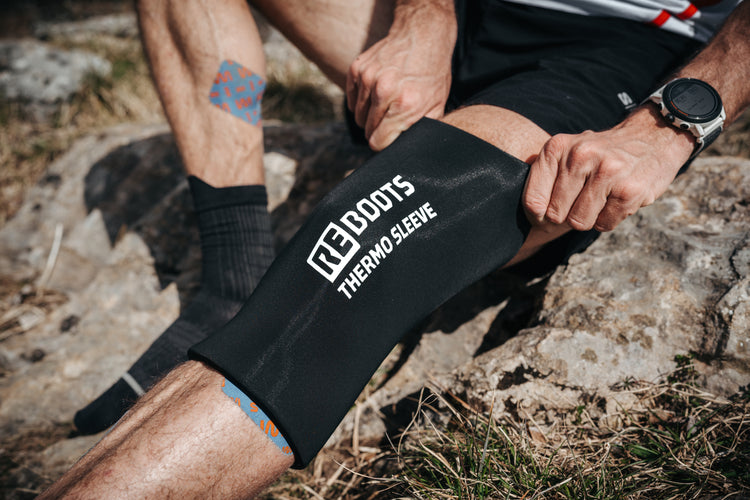Overtraining and Overexertion in Running
Correct Training
Are you a passionate runner, perhaps preparing for a marathon or half marathon, enjoying trail running adventures, or simply love jogging regularly? Then you surely know the challenges that intense training brings with it. It is important not to run during an illness like a cold or fever, as this can lead to serious illnesses. One of the biggest dangers for runners is overexertion. But what exactly is overexertion, and how does it differ from overtraining?
Overload vs. Overtraining
- Overload occurs when you temporarily demand more from your body than it is used to. This can lead to fatigue, muscle soreness, and a temporary decrease in performance. Various forms of physical stress and exhaustion, such as muscle fatigue due to depleted glycogen stores and the role of oxidative stress, can play a part in this. However, with sufficient recovery, your body is able to regenerate quickly and come back stronger.
- Overtraining, on the other hand, is the result of chronic overexertion without sufficient recovery. It is a serious condition that can lead to prolonged fatigue, performance losses, sleep disturbances, and even psychological problems. Overtraining often requires a break from training lasting several weeks to several months to fully heal.
Overload in Running: Causes and Prevention
Overload is a common problem in running that can affect both beginners and experienced runners. We have now explained the difference to overtraining. However, since the topic of overload in running plays a major role, we give you a few tips on how to avoid overload and explain why it happens so often.
Pain, fatigue, and decreased performance due to overexertion
Common Reasons
- Unrealistic Goals: Many runners set ambitious goals, whether it's the first marathon, a fast half marathon, or achieving a new personal record. While these goals are motivating, they can quickly lead to overexertion if pursued without a well-thought-out plan.
- Increasing training intensity too quickly: A common mistake, especially among beginner runners, is increasing running distance and intensity too quickly. The body needs time to adapt to the new stresses. Without sufficient recovery, this can lead to overuse.
- Lack of Recovery: Many runners, especially those who are very motivated, neglect recovery. Without regular breaks and targeted rest, the body becomes permanently overloaded and performance decreases.
- Missing Feedback: Ignoring signals from the body is another cause. Pain, fatigue, and decreased performance are clear signs that the body needs a break. However, many runners tend to ignore these signals and keep going.
How to Avoid Overload
- Set realistic goals: Set achievable goals and allocate enough time to reach them. A trainer can help you create a customized training plan that gradually increases your performance and avoids overexertion.
- Progressive Increase: Gradually and continuously increase your training. A rule of thumb is not to increase the training volume by more than 10% per week. This gives your body enough time to adapt and optimize recovery.
- Plan for regeneration: Schedule regular regeneration days and make sure to give your body enough time to recover after intense training sessions. Use passive regeneration techniques such as massages and compression massage devices to support recovery.
- Listen to your body: Pay attention to your body's signals and respond accordingly. Pain and fatigue are warning signs that you should not ignore. If symptoms persist, it is advisable to consult a doctor or physiotherapist.
- Monitor training: Use training apps or devices to monitor your training and document progress. This helps you plan your training better and avoid overexertion.
- Appropriate clothing and sensible running shoes: The right equipment plays a crucial role in avoiding overexertion. Wear suitable, breathable clothing that wicks away sweat well and ensures a comfortable body climate. However, well-fitting running shoes that match your running style and needs are particularly important. A professional running analysis can help you find the right shoe that provides sufficient cushioning and stability, thus minimizing the risk of injury.
By avoiding overexertion, you can increase your performance in the long term and minimize the risk of injuries. A well-thought-out training plan, sufficient recovery, and the right feedback are crucial for running healthily and successfully.
Recovery is everything
The Importance of Regeneration
One thing is now clear: Regeneration is not just a nice extra, but an essential part of any training plan. The ability of muscles to regenerate and perform under oxidative stress is crucial. Whether it's a marathon, half marathon, trail running, or regular jogging – proper regeneration allows your body to recover from exertion, repair and strengthen muscles, and support your immune system. It helps to prevent injuries and ensures that you remain capable in the long term.
Regeneration techniques
It is important to warm up properly before running and to have a well-thought-out training plan to avoid injuries and improve performance.
Additionally, there are many methods to support regeneration, which fall into two main categories: active and passive regeneration.
Tips for Runners
Active vs. Passive Regeneration
Active Regeneration
- Light activities: Easy runs, swimming, or cycling promote circulation and help reduce muscle pain. Beginners should be careful to avoid overexertion when jogging and pay attention to correct running technique to avoid common mistakes.
- Stretching and Yoga: Regular stretching and yoga improve flexibility and help relieve muscle tension.
- Nutrition: A balanced diet with sufficient proteins, carbohydrates, and healthy fats supports regeneration and provides your body with the necessary nutrients.
Passive Regeneration
- Massages: Regular massages promote circulation, relieve tension, and support muscle recovery.
- Ice and heat applications: Alternating ice and heat applications can help reduce inflammation and promote healing.
- Sleep: Sufficient sleep is crucial for recovery. Make sure to sleep at least 7-8 hours every night.
Special Regeneration Bundle for Runners
Our insider tip
Our devices offer targeted massage that improves circulation and accelerates recovery after intense training sessions or competitions. This technology is particularly useful for runners who want to train regularly, long for a relaxing and soothing way of regeneration, and aim to take their performance to a new level.
To provide you with the best possible support for recovery, we have put together a special Running Bundle for runners. This Bundle includes:
- Reboots One with the Pants 2.0: Our compression massage devices that optimally regenerate your legs after training.
- Thermo Sleeve and Thermo Longsleeve: These products are equipped with integrated thermogel and offer both cold and heat treatments. They help with injuries, inflammations, bruises and have pain-relieving and decongestant effects.
- Backpack: Practical and stylish, ideal for transporting your recovery gear.
Conclusion
Whether you're preparing for your first marathon, regularly running half-marathons, loving the challenges of trail running, or simply enjoy jogging – the right balance between training and recovery is crucial for your success and health. Make sure to avoid overtraining and give your body the necessary breaks. With products from Reboots, we support you in optimizing your recovery and unlocking your full potential.
Ready to take your recovery to the next level? Check out our special Runner Bundle and get going!
